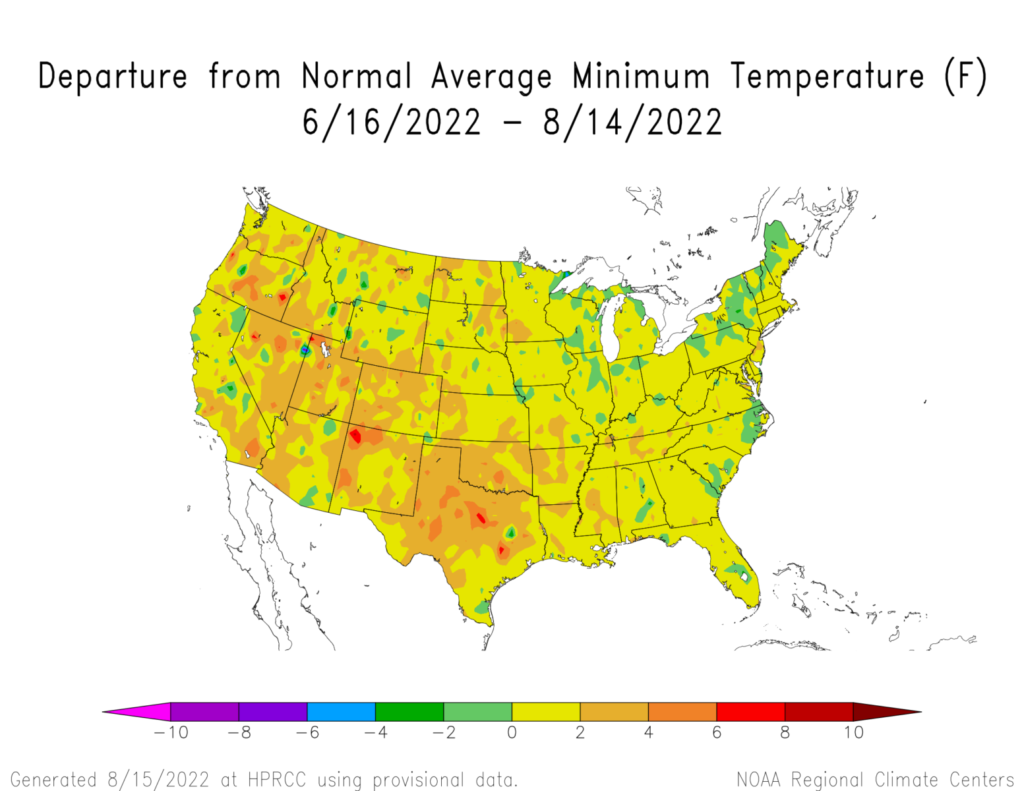One of the secrets of the trend towards warmer temperatures over time is that a lot of the warming is not occurring during the day but at night. In Georgia, overnight low temperatures are rising at a rate that is double the increase in daytime high temperatures. This has special consequences for human and animal health since when temperatures stay warm overnight, mammals cannot get relief from the heat and start to suffer consequences like reduced milk production and fertility or an increased chance of heat-related illnesses. Some crops like corn are also adversely affected by warm nights.
So it is very concerning that the July 2022 overnight temperatures set a new record for the United States, with the warmest minimum temperatures in the 122-year record being observed. Note that most of the stations used in this analysis are not city stations whose temperatures are affected by the urban heat island of cities but are rural stations where pavement would not be an issue. Here in the Southeast we are more adapted to overnight heat by the widespread use of air conditioning, but this does not always apply to our cattle or people located in economically-disadvantaged areas. How will we adjust to a warmer nighttime climate? You can read more from AP here.
